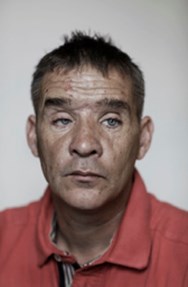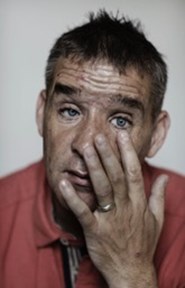Professor Olga Goriunova
Across the articles “The Digital Subject. People as Data as Persons” and “Face Abstraction! Biometric Identities and Authentic Subjectivities in the Truth Practices of Data“ Olga Goriunova proposes the notion of digital subjects, which are not data shadows of the humans, but abstractions composed in the computational infrastructures.
Digital subjects, she argues, are formed in the distance - which is what makes political intervention possible - and are not fully mappable onto the humans. In fact, they are always either above or below the level of the individual. Goriunova explores the production of such subjects by machine learning techniques, such as those used in Facebook Lookalike Audiences service, which simulates rather than represents, and thus does not offer a causal interpretation (like most big data) nor a firm indexical correspondence to specific humans.
In the special issue “Digital Subjects” edited by Goriunova, she invites scholars to engage with the related notions of the user, the subjects of artificial intelligence, or self and reality. In her own contribution, she examines how the notion of biological identity is picked up and reinforced by the technology of biometric identification. Biometrics uses the idea of unique identity by anchoring it in the “body principle”, whereas the techniques themselves are in fact collective evaluations of the probability of variation and reoccurrence of geometrical relationships (for instance, between cheekbones and eyebrows) across population - a far cry from essential uniqueness.
Olga Goriunova is working on a monograph that positions the genesis of such digital subjects in relation to the philosophy of the subject and the computational infrastructures of today.
Dr Alfie Bown
From mobile phones to consoles, tablets and PCs, we are now a generation of gamers. No longer a subcultural space on the margins of cultural life, gaming is now at the very centre of popular culture and of mainstream discourse and the gaming industry plays a key role in determining the political and social values of global society today. The Playstation Dreamworld argues that we can only understand the world of videogames via Lacanian and Freudian dream analysis. It also argues that political progressives need to work inside this dreamspace – a powerful arena for constructing our desires – or else the dreamworld will fall entirely into the hands of dominant and reactionary forces.
While cyberspace is increasingly dominated by corporate organization, gaming, at its most subversive, can nevertheless produce radical forms of enjoyment which threaten the capitalist norms that are created and endlessly repeated in our daily relationships with mobile phones, videogames, computers and other forms of technological entertainment. The book argues that there is a space for artistic, creative and political subversion within the gaming industry and works toward identifying ways in which this space might be exploited.
The book was published in Polity’s ‘Theory Redux’ series featuring a collection of renowned media and cultural studies writers including Graham Harman, Franco Berardi, Helen Hester and Dominic Pettman. Since its publication in December 2017, The Playstation Dreamworld has been reviewed in dozens of places including Radical Philosophy and the Times Literary Supplement. It has also featured in the national press including in The Guardian and internationally in The Asia Times and in other places. It has recently been translated into Slovak and is forthcoming in Spanish (2020), and in Portuguese and Serbian (2021).
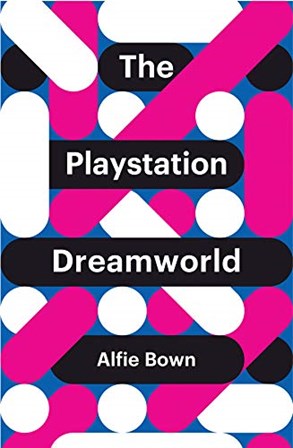
Professor Victoria Mapplebeck
The Waiting Room is a Film and VR Journey which tells the story of Victoria Mapplebeck's breast cancer (as patient and artist) from diagnosis through treatment to recovery. The Waiting Room uses film and audio recorded by Victoria over 18 months of treatment, documenting her time in waiting rooms, surgery, chemotherapy, radiotherapy and at home with her teenage son. The Waiting Room VR provides an intimate and visceral portrait of cancer treatment and its transformative impact on the body and family life.
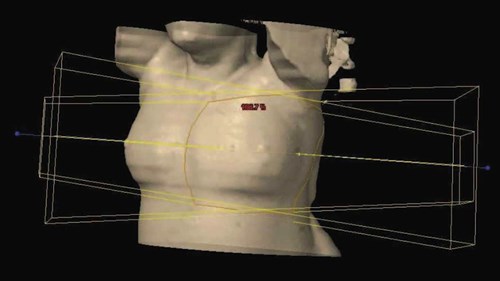


The lynchpin of the VR piece is a 9 min durational 360 take, a reconstruction of Victoria's last session of radiotherapy, which marked the end of nine months of breast cancer treatment. The user finds themselves in an intimate and unexpected role of bystander. This experience is counterbalanced by a CGI journey inside her body. Working with 3D artists, Victoria brought to life the medical imaging she collected during her treatment and gained access to through a collaboration with oncologists and histologists at the Guys and St. Thomas’s NHS Trust. Cancer cells, CT scans, mammograms and ultrasound provide a 3D portrait of her body from the inside out.
The Waiting Room begins with a personal journey but as cancer affects one in two of us over the course of a lifetime, it also tells a very universal story. Moving beyond sentimentality and survivor/victim binaries, the project disrupts the objectification of the medical gaze and reminds the audience of the person behind the diagnosis.
The Waiting Room VR project premiered at the 76th Venice International Film Festival . It was also selected for the 2019 IDFA Doc Lab where it won The IDFA DocLab Award for Digital Storytelling. The Judging panel wrote of the piece, “The Waiting Room VR was able to address the complexity and simplicity of one of the most dramatic human experiences….It provoked us to breathe and feel, and left us with a sense that we just experienced something new and poignant and unforgettable”.
The Waiting Room Film and VR project was also featured on BBC Click and was selected for Forbes Top 50 XR experiences of 2019. In 2020, The Waiting Room was selected for Tribeca’s We Are One festival and The Changemaker Showcase for Unity for Humanity.
Dr Richard Wright
“The Elastic System” by Richard Wright is the main output of the AHRC funded research project “The Internet of Cultural Things” made in collaboration with The British Library while artist-in-residence (2015-2016). The aim was to make visible the cultural data generated in public institutions and to transform the way people and institutions interact.
In the 1840s the librarian Thomas Watts developed early data processing techniques for The British Library. “The Elastic System” created an interactive mosaic portrait of Watts composed of 4,300 books. When a book was requested it was removed to gradually reveal images of the staff working in the library's underground storage basements. This was made possible by a live connection to The British Library's requesting database - the first time they had allowed an artwork to have access to their operational infrastructure (from Sept 2016 to April 2020). “The Elastic System” encapsulates the many layers of the information ecology that makes up The British Library: visual, digital and infrastructural systems in co-operation as a dynamic body of data.
“The Elastic System” has been exhibited as an installation at The British Library, the Digital Catapult London and Hartley Library Southampton University and presented in symposia such as at the Liverpool Biennale and Anglia Ruskin University. It is now publically available at www.ElasticSystem.net
BL Living Knowledge Blog: “The Elastic System: What Can You Do with a Library?”, 24th November 2017.
The background research was also disseminated in 72 Tweets during Summer 2018.
An animated data visualisation showing how British Library accessions have spread globally since its founding in 1753: “Knowledge Migration”, June 2016.
Artist’s web site:

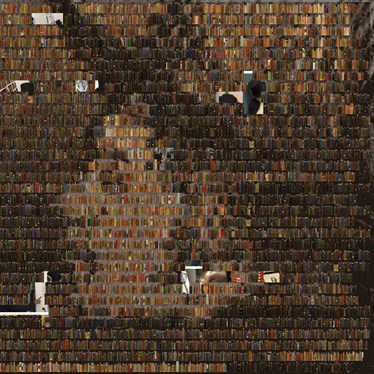
Chris Hogg
Rathband: A Digital Tragedy by Chris Hogg is a 3-part drama about the last 20 months in the life of a tough Northern Policeman. PC David Rathband was 43 when he was shot and blinded by Raoul Moat. For an absurd week, he was worldwide news. Even Gazza turned up to help at the siege of Rothbury with beer and chicken. Ray Mears was parachuted in to track Moat over the moors. At one point ten per cent of the British armed forces were in some way involved. Somewhere in this maelstrom, a policeman was shot and Britain was changed. The collapse of public and private, the birth of narcissism on a mass scale, our sheer loss of concentration and our inability to put down our screens all became manifest on July 4th 2010.
This technically stunning docudrama freezes this moment and unpacks the changes that our digital lives are having on the way we make sense of the world. In meshing and layering the stories of Raul Moat’s infamous final stand-off and David Rathband’s doomed attempts to recover from his injuries through a cacophony of news headlines, TV interviews, police statements, psychiatrists’ reports and social media’s first explosion into our lives, it begins to record many very personal conversations for a very public eternity.
WINNER OF BEST BBC AUDIO DRAMA PODCAST 2018

